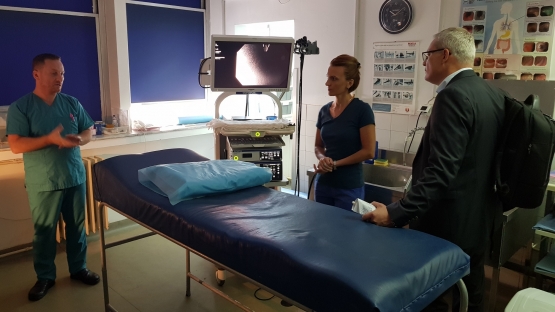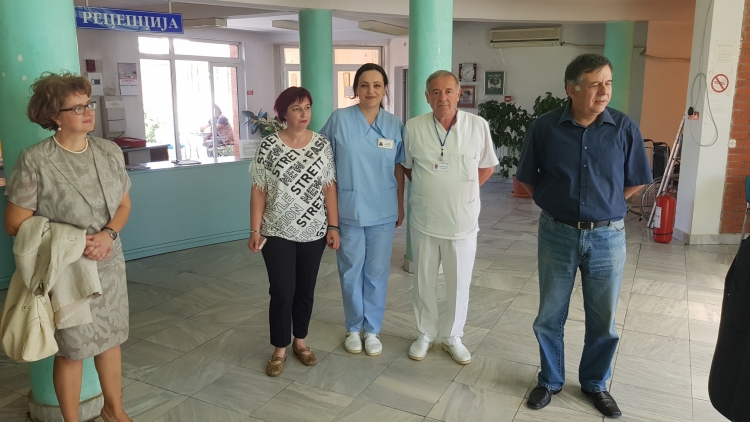An IAEA-led imPACT mission to the former Yugoslav Republic of Macedonia (FYROM) last month concluded that the country has established the necessary infrastructure and has a skilled workforce to respond to the cancer burden. Enhanced integration and coordination of cancer services, notably in diagnosis and treatment, would further improve the delivery of cancer services.
Recent data released by the World Health Organization and the International Agency for Research on Cancer (IARC) are pointing to a rise in cancer deaths in the country despite the stabilization in the number of cases since 1995. As the FYROM has no national cancer registration or surveillance system in place, IARC’s projections are used to estimate its cancer profile. According to these, there will likely be over 7 800 new cancer cases and over 4 100 related deaths in 2018. Almost every fourth person in the country is at risk of developing cancer during his or her lifetime. By 2030, it is estimated that the country will face almost 9 200 new cases and over 5 000 deaths per year.
“Our country prides itself on having a well-trained cancer workforce, but the rise in cancer mortality is troubling. We are aware that the cancer control system requires an upgrade and challenges need to be faced,” said Minister of Health Venko Filipche. “Oncology is very important for us, and the Ministry of Health looks to the expert insights from the imPACT Review to help us address these issues.”
At the request of the Ministry of Health, the IAEA-led imPACT Review, which has included experts nominated by the WHO and IARC, has provided an expert country-wide assessment of current capacities and needs to guide the development of a Government-led public health response.
Filipche highlighted the following activities currently under way and requested the imPACT Review’s team of experts to assess progress and recommend measures for improvement:
- Cancer registration and surveillance is deemed an absolute priority. This would provide evidence to make informed decisions in national cancer control planning and investments.
- Introduction of new oncological drugs.
- Expansion of hospital facilities with concurrent installation of additional LINAC radiotherapy machines, and the establishment of a network of hospitals offering radiotherapy.
- Strengthening of a patient referral system.
- Development of a comprehensive strategy for cancer control based on the imPACT Review recommendations, and subsequent engagement with the donor community for funding support.





